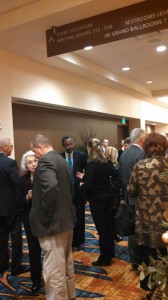Anyone who really knows me, knows that I love to hike. If I can’t be hiking in a state park, I take walks down the country roads near my home in rural Sheridan. Today was a perfect day for a walk down to the turkey farm with the sun shining brightly and a light, cool breeze. The wild flowers and the grasses are tall along the edge of the roadway and I couldn’t help but touch the tops of them with my hand as I strolled along. What freedom I have that I don’t often ponder enough to appreciate.
My heart aches for those who have had their freedom stolen from them. I have been deluded into thinking that slavery was abolished over a century ago but that thinking was wrong. Today it is estimated that world wide at least 27 million people are held in slavery. This is more than at the height of the slave trade in the 1800’s prior to the Emancipation Proclamation. We don’t tend to call it slavery anymore but name this despicable practice “Human Trafficking”. It is slavery just the same. Much of it is sex trafficking and forced labor. A large portion of its victims are children. These children are held against their will and are used as commodities to profit their captors. The average age of children held in sex trafficking is 12-14 but some are younger than 5. Their stories are heartbreaking.
Last evening the Sheridan Reader’s Club invited the community to the library for a discussion of the book, “Ruby”, a modern day story of human trafficking. It is a fictional work set in the small town in Liberty, Texas but is based on situations experienced personally by the author. Life in Liberty was the antithesis of freedom for Ruby. As a child she was trafficked by people she should have been able to trust and as an adult she struggled to keep her sanity while memories haunted her. This book destroys the presumption that human trafficking is a problem somewhere else in the world. It is in our own backyard.
During our discussion last evening, a presentation was given by local resident, Clair Sample on her experience working with trafficked girls in India. She made a statement that many of the girls rescued had been housed by their captors in rooms no bigger than one of our closets. They would only be out of this containment to be forced to have sex with sometimes more than 20 men a day. Only around 1% of those trafficked are ever rescued. The average lifespan of these victims is 34 years old. Most die from homicide.
The statistics are dismal. What can one person do to make an impact in such an enormous world-wide problem? Mother Teresa once said, “I alone cannot change the world but I can cast a stone across the waters and create ripples.” She certainly created a lot of ripples in her lifetime and so can we. Indiana has a task force called IPATH, Indiana Protection for Abused and Trafficked Humans. Their focus is on education to create awareness so trafficked individuals can be recognized and rescued. They also have a curriculum for middle and high school students to help them avoid being vulnerable to trafficking themselves. Later this summer and next fall, we will be utilizing the expertise of the IPATH facilitators to educate the Sheridan community and students about human trafficking. This was developed through the Attorney General’s office and is free to anyone requesting this educational service.
Freedom is a precious gift that can easily be taken away. I enjoy my freedom while others are held captive. To live comfortably and do nothing is not an option. A prolific writer and holocaust survivor, Elie Wiesel, spoke of the perils of inaction. “Indifference is always the friend of the enemy, for it benefits the aggressor—never the victim, whose pain is magnified when he or she feels forgotten. The political prisoner in his cell, the hungry children, the homeless refugees—not to respond to their plight, not to relieve their solitude by offering them a spark of hope, is to exile them from human memory. And in denying their humanity, we betray our own.”
The first step in solving Human Trafficking is the recognition of its existence. The freedom to walk in the sunshine, to touch flowers growing along the roadside, to feel the cool breeze, should not be a privilege enjoyed by some but denied to millions. Once I realized that slavery is more prolific now than ever, I feel compelled to become a modern day abolitionist. As those who have come before me, I can cast a stone to create ripples in the water and be the spark of hope for the captives. One person joined together with other caring souls can make a difference if only we choose to take that first step.




